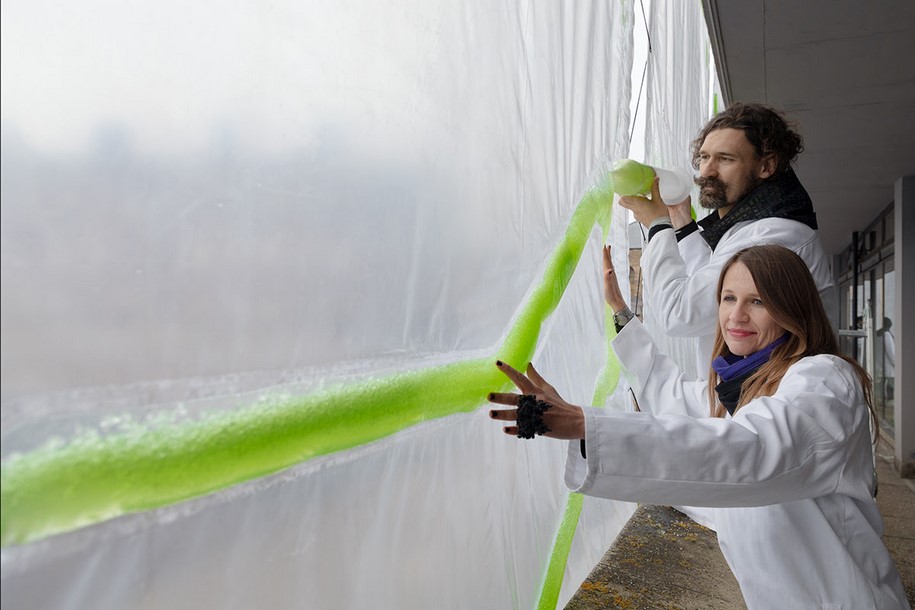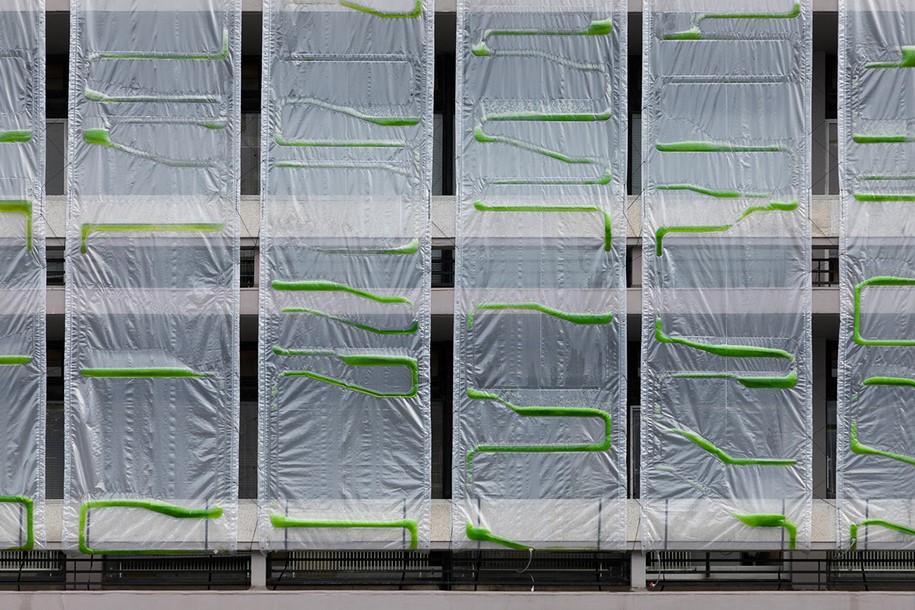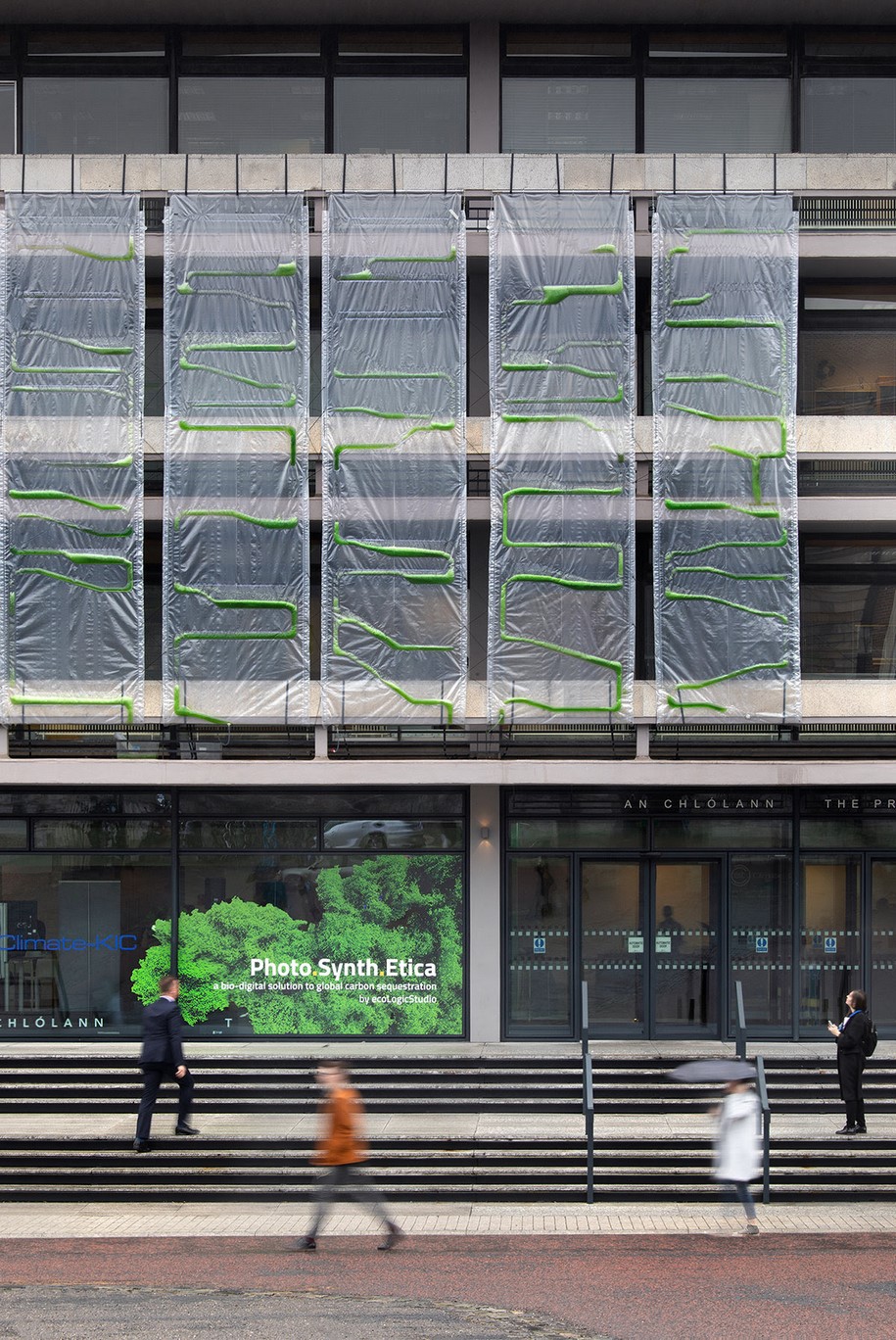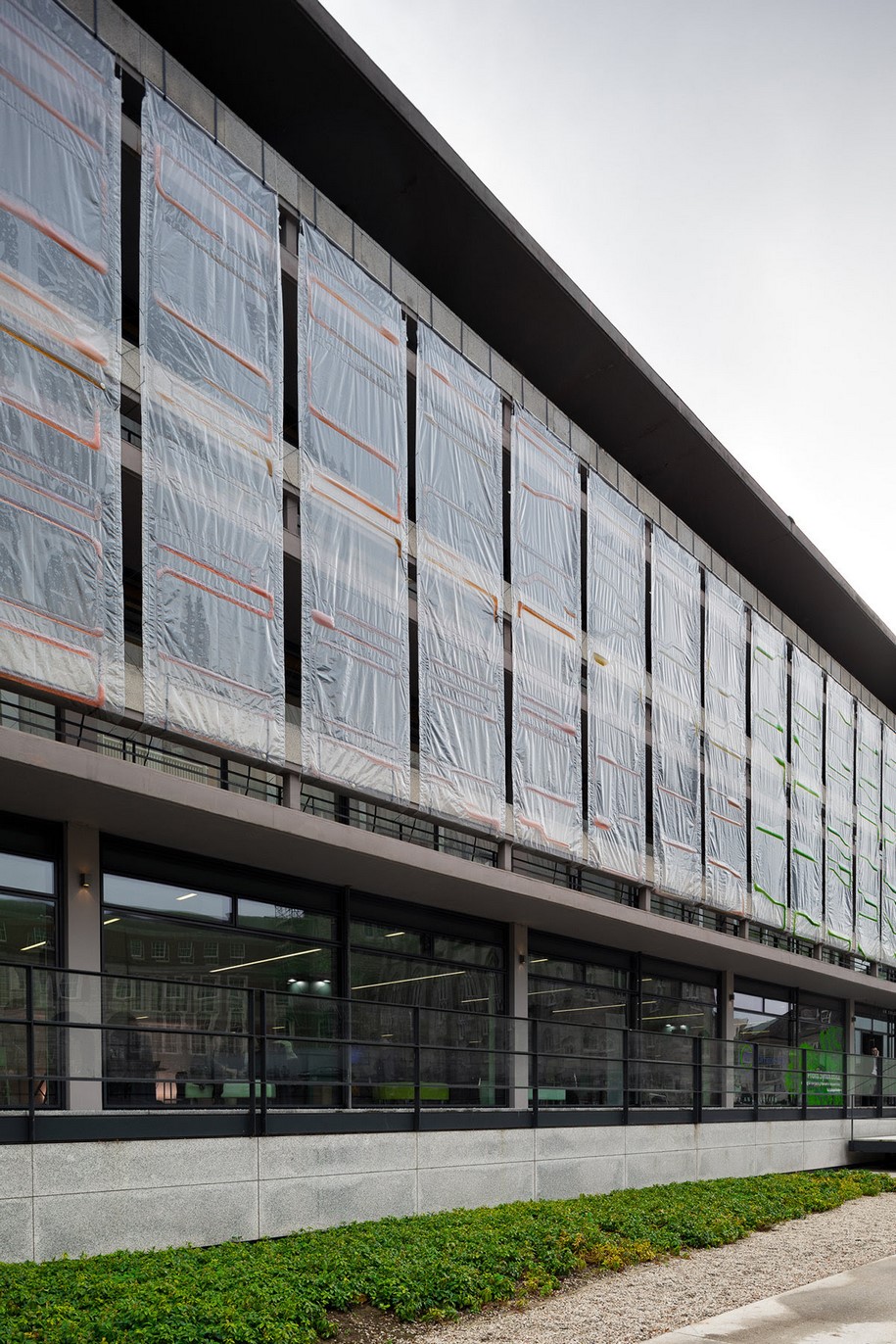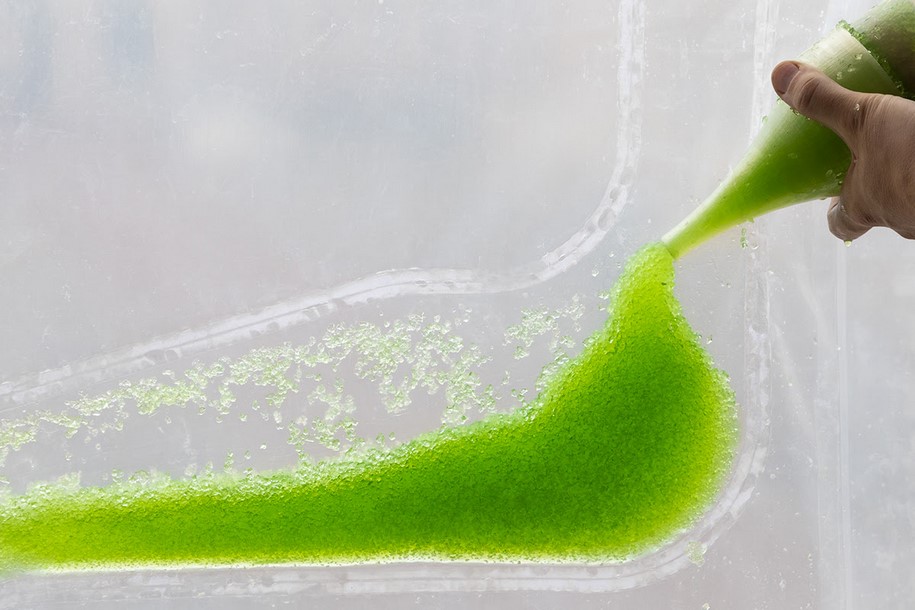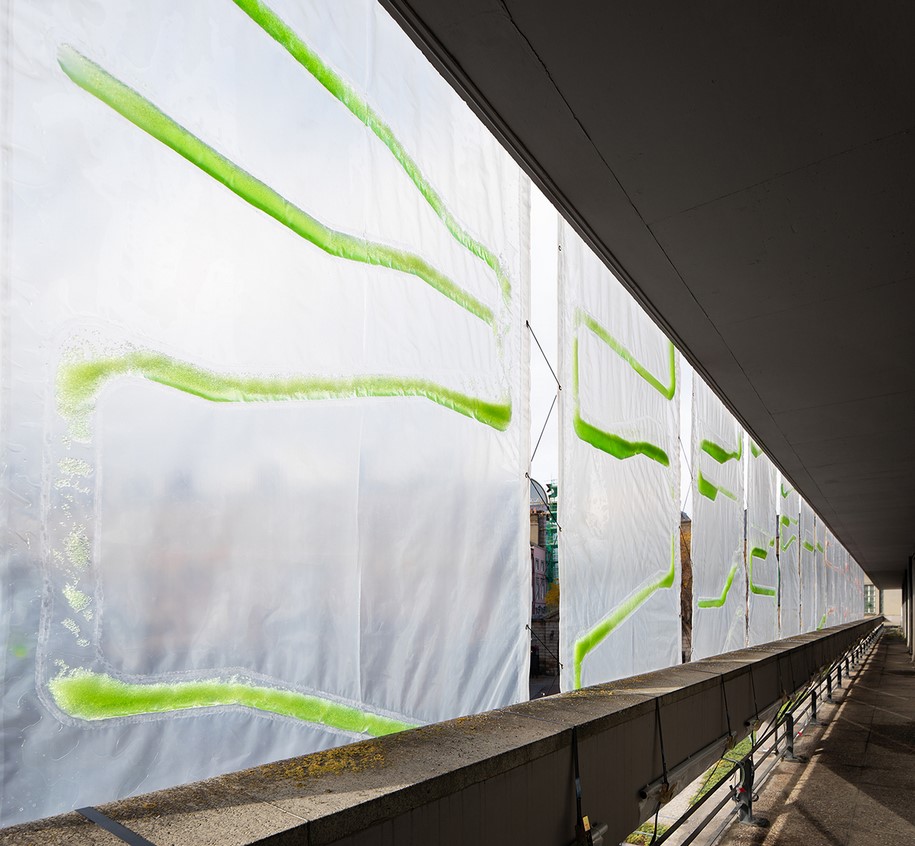London-based architectural and urban design firm ecoLogicStudio, led by Claudia Pasquero and Marco Poletto, unveils Photo.Synth.Etica, a large-scale installation, designed for their first collaboration with Climate-KIC, the EU’s most prominent climate innovation initiative, which aims to accelerate solutions to global climate change.
Conceived as an “urban curtain”, Photo.Synth.Etica, presented in Dublin during the week of Climate Innovation Summit 2018, captures CO2 from the atmosphere and stores it in real-time: approximately one kilo of CO2 per day, equivalent to that of 20 large trees.
Composed of 16, 2 x 7 metre modules, the unique curtain prototype envelopes the first and second floor of the main façade of the Printworks building at Dublin Castle. Each module functions as a photobioreactor, a digitally designed and custom made bioplastic container that utilizes daylight to feed the living micro-algal cultures and releases luminescent shades at night.
Unfiltered urban air is introduced at the bottom of the Photo.Synth.Etica façade and, while air bubbles naturally rise through the watery medium within the bioplastic photobioreactors, they come into contact with voracious microbes. CO2 molecules and air pollutants are captured and stored by the algae, and grow into biomass. This can be harvested and employed in the production of bioplastic raw material that constitutes the main building material of the photobioreactors. To culminate the process, freshly photosynthesized oxygen is released at the top of each façade unit of Photo.Synth.Etica, and out into the urban microclimate.
Thanks to their serpentine design, the modules optimise the carbon sequestration process and the full curtain pattern is reminiscent of a large trading data chart that embodies Climate-KIC’s commitment to promote new models to solve the global climate crisis.
Moreover, the Photo.Synth.Etica project seeks to symbolically embody a parallelism between the monetary carbon trading market and the transactions carried out by the molecules, as ecoLogicStudio’s founders say: “The message is one of spatial convergence and connectivity between the financial marketplace of cyberspace and the relative organic molecular transactions in the biosphere”.
The innovative shading system could be integrated into existing and newly designed buildings.
Smart cities, smart homes, autonomous vehicles, robotic factories, etc. dominate the current panorama of popular futuristic scenarios, but they all desperately need spatial and architectural re-framing to engender beneficial societal transitions.
Photo.Synth.Etica suggests that, in the Anthropocene age, a non-anthropocentric mode of reasoning, and deploying cutting-edge technologies based on digital and biological intelligence, could be at the core of urban design and stimulate our collective sensibility to recognise patterns of reasoning across disciplines, materialities and technological regimes.
The project takes its name from the Photosynthetica consortium directed by ecoLogicStudio in partnership with Urban Morphogenesis Lab – UCL and Synthetic Landscapes Lab – University of Innsbruck.
Forthcoming projects by ecoLogicStudio include an photosynthetic sculpture for the Centre Pompidou (Paris), a research project involving the use of biogel instead of water as the algae medium, 3D printing techniques to prototype architectural photobioreactors, and the design of a façade system for a new museum of microbes in Innsbruck (Austria).
Facts & Credits
Architecture ecoLogicStudio (Claudia Pasquero and Marco Poletto)
Design team Konstantinos Alexopoulos, Nico Aulitzky, Shlok Soni, Robert Staples, Chrysi Vrantsi, Chia Wei Yang
Structural Engineering Manja van de Worp (Nous Engineering, USA)
Bioplastic Supply and Manufacturing Support James Woollard (Polythene, UK)
Microalgae Cultures Supply Dr. Fiona Moejes (Bantry Marine Research Station, Ireland)
Photography © NAARO
READ ALSO: FABABU HOUSE | Fran Silvestre Arquitectos
